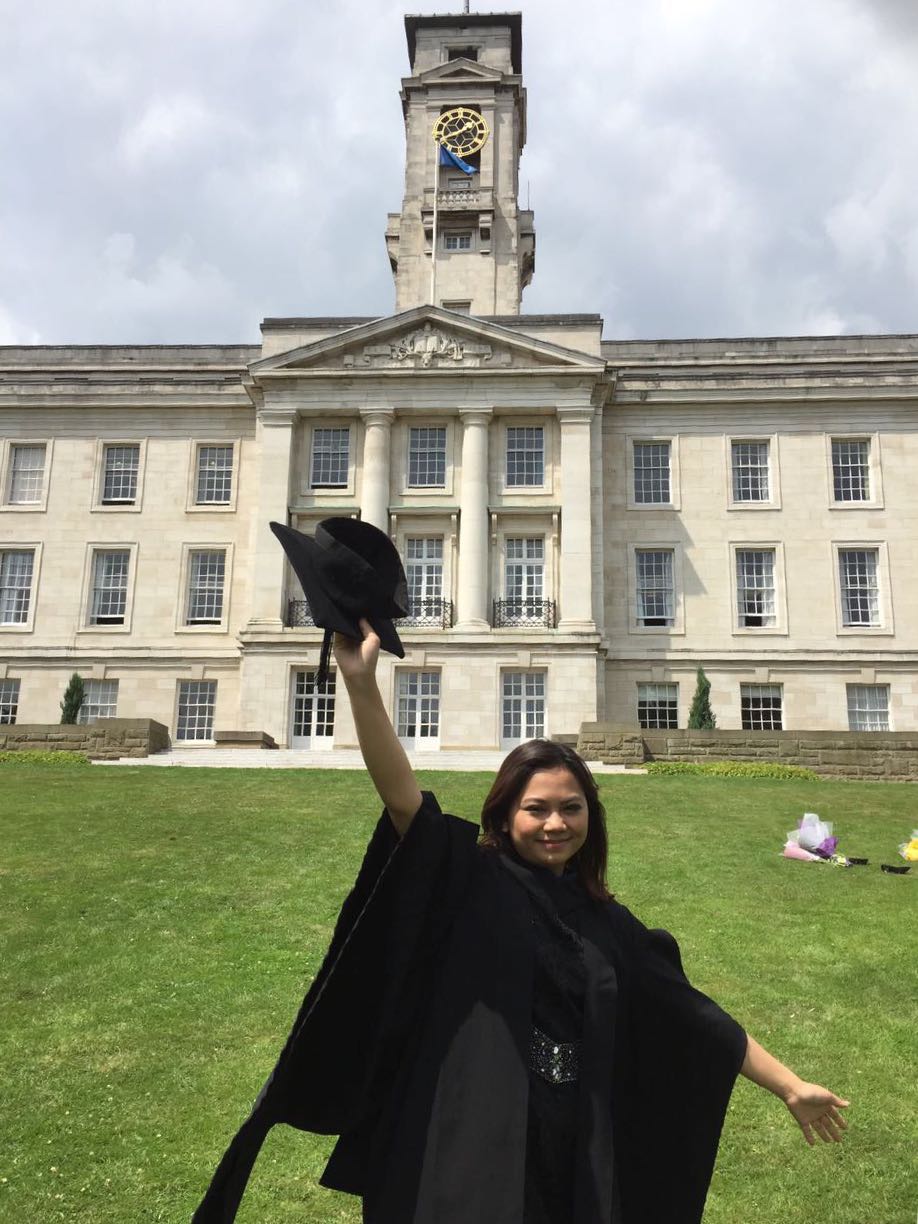Graduating from university abroad is both a blessing and a burden. Why? The graduation euphoria may be proven to be temporary especially for us, international students. Not only does it mark the end of our degree programme, but also more importantly, our student visa. In the UK, your student visa usually expires around 3 months after graduation. So technically-speaking, if you don’t bag a job by then, you will have to leave the country.
To get a job or not to get a job, that is the question. Even though competition for graduate schemes is cut-throat, it is not impossible to get one as Ananda Tika Sudarmaji did by securing a graduate role at Atkins after finishing her studies at the University of Nottingham.
Sarah (S): Hi Tika! To begin with, could you please tell us a bit about yourself?
Tika (T) : Hi Sarah, yes sure! I was a student at The University of Nottingham and I studied Architectural Environment Engineering (AEE). Previously, I went to the University of Nottingham China campus and then decided to finish the last 2 years of my degree in the UK campus. Now that I have graduated, my next goal is to finish a graduate scheme at Atkins, which I luckily have obtained 5 months before graduation.
S: First of all, I would like to congratulate you for graduating from university! Not only that, but you have also managed to snag a graduate role at Atkins which I am sure is a major milestone for you or any fresh graduate. Could you please describe more about your role there?
T: My role there is called ‘Graduate Engineer – Building sector’, whose task is to design building services that are suitable for the function of the building itself. I will have to make sure that my design is up to the national or international standard, fulfil clients’ requirements, as well as making sure that it is sustainable and low carbon. Designing building services is rather challenging, as they are the biggest contributor of energy consumption in a building, e.g. ventilation, heating, air conditioning, power systems, fire alarm, water services, and so on.
S: I know that you were a BEng Architectural Environment student. As it is a rather ‘specific’ course as opposed to a general one, could you please tell us more about it?
T: Building services in Indonesia is usually known as MEP, which stands for Mechanical (Heating, Ventilation, and Air Conditioning), Electrical (Power System), and Plumbing (Water Services). Most students that ended up working in building services industry are usually of Mechanical Engineering background, while the major I took was rather specific as it focuses on all three aspects of building services. So once I applied for a job, I can choose in which sector I want to focus on, which is Mechanical. AEE mainly stresses on building or construction sector, while mechanical engineering is more general.
S: I understand that starting out job-application process might have been daunting and time-consuming, especially with the added pressure of being a final year student. How was it like for you in the beginning?
T: It was nerve-wrecking actually, but after talking to friends and family, they always assured me to stay calm and just do my best. I had to make sure that I manage my time well. I usually study from Monday to Saturday and then leave Sunday for job hunting and some relaxation time. I believe that, if you are determined and put your heart into something, you will eventually get it.
S: As to get a Tier-2 work visa in the UK is proven to be difficult for non-EU (European Union) international students, did you apply for jobs elsewhere too?
T: Honestly I only applied to 4 companies in the UK, which is such a small number, but my strategy is to be focused. I did thorough research and readings about those companies. First, I ask myself questions like ‘why I want to work for them?’, ‘are they interesting?’,’what have they done?’, their work culture, etc. Secondly, I question my own capabilities and assess what my strengths and weaknesses are. I would rather make a few applications tailored specifically to those companies, than sending out many ‘general’ applications.
S: Does Atkins provide a Tier-2 work visa sponsor for non-EU international students like yourself?
T: Luckily they do! Looking for companies that provide sponsorship itself is indeed a hassle, but patience is key here. Try to attend as many career fairs as you can whilst you are in university, and at such events I usually ask about sponsorship before anything else.
S: Based from what I have found, there are 5 steps in Atkins UK Graduate application process, which are
- Situational judgement test (SJT)
- Full Application Form
- Numerical and inductive reasoning tests (computer-based)
- Telephone interview
- Graduate assessment centre
Do you mind telling us more about your own personal experiences with each of them?
T: SJT has no right or wrong answer, at this stage you need to do an online test that will ask what actions will you take when you are put in certain scenarios. As companies differ in their values, from this test, they are able to see which applicants are more suited to work in their companies. Like I said, there is no right or wrong answer, but try to answer the questions truthfully. If you passed this test, you can continue to the next step.
A full application form is basically a detailed CV, as Atkins does not require a CV.
Due to its time limit, numerical and inductive reasoning test, that is done online, is challenging. You only get one shot to do it, and you have to pass a minimum score (which is not disclosed) to be able to move to the next stage. Remember, you have to do it yourself, because some companies may ask you to do the same test again, when you are invited for the interview stage.
For me, the telephone interview was rather relaxed. The trick is to be confident and be sure of what you are talking about. You can familiarise yourself by looking up some sample interview questions online beforehand.
The assessment centre was a difficult one. There was a technical interview, a written exercise, a competency interview, a group exercise, and a presentation. In the technical interview, there were two experts from the sector which I have applied for. My tip is to revise what you have learned so far, as it will help you in both the interview and the written exercise.
S: Which element of the application process was the most challenging and why?
T: For me, the hardest one was the group exercise in the assessment centre. You do not have to be the most dominant one in the group, but you just have to actively participate. It is hard because you have to process a lot of information and be able to solve problems in a short amount of time.
S: Do you have any advice for others who may find themselves in a similar situation?
T: Make sure you apply early! Applications usually open in early August and close in February time. If you look for jobs late in the academic year, it will be harder to get a job as applications usually open on a rolling-basis.
S: Thank you Tika for your time! Is there any way for others to get in touch to ask further questions?
T: No problem! You can email me at anandatikacai@gmail.com .










